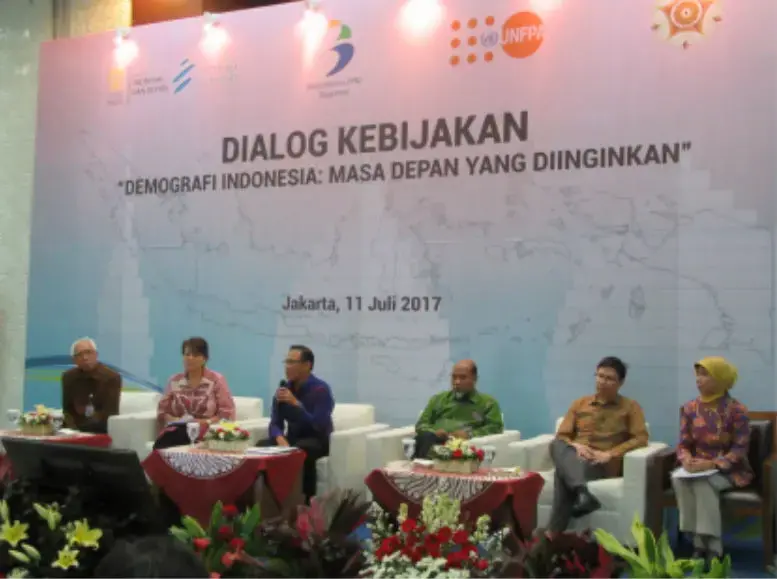ndonesia’s family planning program has been
recognized as one of the key international successes
in national-level interventions on reproductive health.
During the past 40 years, Indonesia has achieved a
significant drop in the total fertility rate from 5.6 in
the late 1960s to a current rate of 2.3.
1
The use of
contraceptives among adults of reproductive age rose
steadily from 18.3% in 1976 to 61.4% in 2007.
2
This
can be directly credited to the family planning program
founded in 1970 under the auspices of the National
Family Planning Coordination Board (BKKBN – now
the National Population and Family Planning Board)
with the goals of addressing rapid population growth
leading to economic progress and improving the health
and quality of life for citizens



